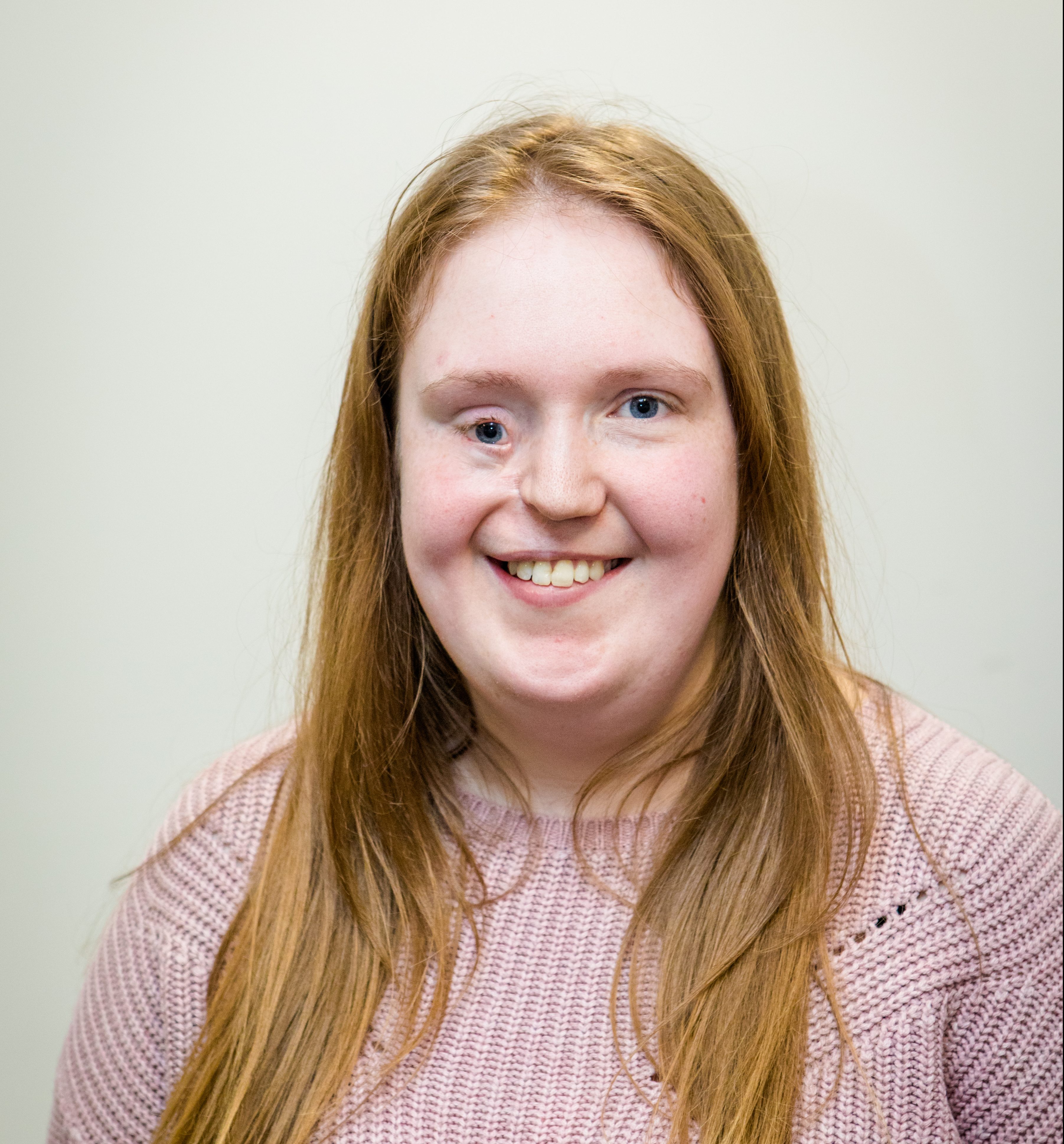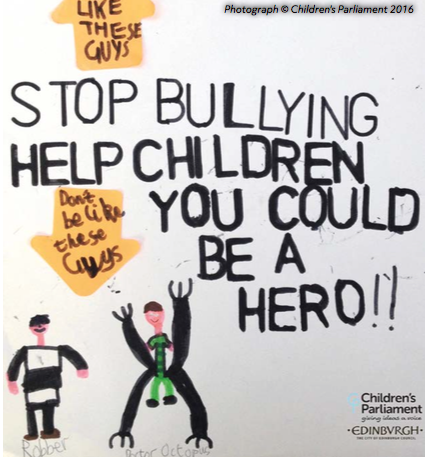Nobody should ever feel isolated, hurt or angry at themselves for being different
3 July 2019
Responding to Call 16 of our 25 Calls campaign, Kaylin, a Changing Faces Campaigner for Face Equality, says we need to work to end the isolation, hurt and anger those with a visible difference can feel towards themselves.
Call 16: Work together to build cultures where every voice is valued, and create a society free from bullying
As part of Children in Scotland’s 25 Calls campaign we are responding to Call 16 by Katie Ferguson which says we must work together to build cultures where every voice is valued, and create a society free from bullying.
My name is Kaylin and I am a Changing Faces Campaigner for Face Equality. This term means equality for anybody that has a mark, burn, medical condition or scar that affects their appearance. Being a Campaigner is so important to me as I have a visible difference and have been bullied for this throughout my whole life.
My friends who are also Campaigners or members of the Changing Faces Youth Action group agree that we need to end bullying. Together, with the help of Changing Faces and Children in Scotland's 25 Calls campaign, I hope that this can one day be achieved.
My personal experiences of bullying have been both online and face- to-face, the most recent one being only a few months ago. Alongside that, any time I go outside I am stared at by strangers. I have been compared to film characters with a visible difference, called horrible names and made to feel like it was wrong to be different.
The feelings of isolation, hurt and anger towards myself for being different and to the people doing this to me are feelings nobody should ever have.
Although I am a young adult now and a much happier, confident person within myself and about my difference, I still feel massively uncomfortable around strangers in a public setting which is a direct result of being bullied. Nobody should ever feel like they don't want to leave the house because they can't face being stared at.
I also spoke with other members of our Youth Action and Campaigners group about Call 16 and asked for their input.
"I will rip your cleft right open" and "disabled face" are just a few of the things 12-year-old Beth has had said to her. It doesn't make her feel good about herself when she thinks about these words.
The old saying, ‘Sticks and stones may break my bones but words will never hurt me’, is definitely wrong and outdated as most of the issues surrounding bullying come from name-calling.
She was not alone in the group for having been bullied for a cleft lip and palate. Craig, who is 12, felt like people that bully are sometimes hurting inside themselves but instead of feeling like they have someone to talk to they take it out on someone else.
We want a culture at work, in schools and at home where everyone has a safe place to talk about however they are feeling, without having to take it out on anybody else.
One of the worst things, and I know this from personal experience, is feeling like nobody cares or wants to help end the bullying. As a child it makes you feel like maybe you deserve to be bullied and that it's ok because nobody is doing anything about it.
We need to educate our adults, caregivers, teachers, parents that this is not ok and it needs to be seriously addressed.
Fifteen-year-old Ruyuan wants "young people to work together to help make society more inclusive as it will help their peers understand how their actions affect others”.
A survey conducted by Changing Faces in 2018 showed that only a third of British young people aged seven to 17 would be friends with someone with a visible difference. Furthermore, one in six young people with a visible difference said they would avoid going to school or out in public because of it.
This is really quite alarming; as a child you just want to make friends and play with everybody. Nobody should feel isolated just because of how they look.
However, with the added problem of appearance-related bullying happening now online, it can be impossible to escape. It is out there for anyone to view and leaves you vulnerable to more bullying by others.
Changing Faces calls for social media companies to operate a zero-tolerance policy on appearance-related abuse. I also believe that to end bullying we need to start educating from a young age, which is what the Campaigners and Youth Action Group for Changing Faces are trying to do.
We host and promote anti appearance-related bullying ‘Face Equality’ workshops all over Scotland and the UK and want to see more schools and youth groups doing this of their own accord.
We are also calling for compulsory training on appearance-related bullying for probationary teachers and lessons on visible difference to be included in the primary and secondary PSE curriculum.
What the Changing Faces Youth Action Group wants:
- Safe places for young people to talk about their feelings at home, in school or at work
- Adults, teachers, caregivers, parents to be educated in tackling bullying behaviour
- Support for young people themselves to create an inclusive society
- Social media companies to operate a zero-tolerance policy on appearance-related abuse
- The education system to include Face Equality in the curriculum and teacher training.
Kaylin is a Changing Faces Campaigner for Face Equality.
She is responding here to Call 16 of our 25 Calls campaign, by Katie Ferguson from respectme, "Work together to build cultures where every voice is valued, and create a society free from bullying." Click here to read the call


Call 16
Work together to build cultures where every voice is valued, and create a society free from bullying
Click to read the full call25 Calls campaign
Find out more about the 25 Calls campaign, view press coverage and read further responses
Click to find out more